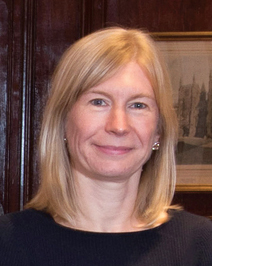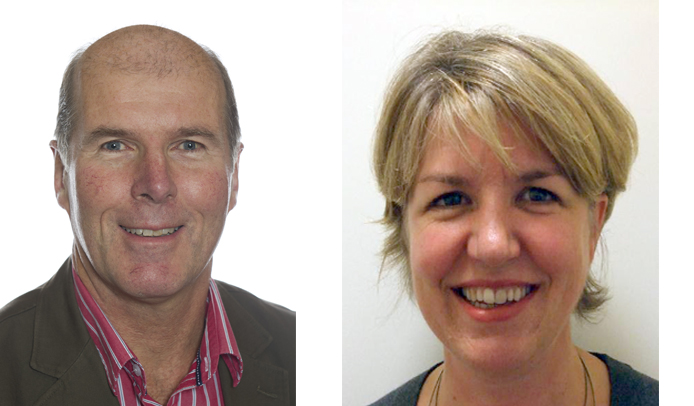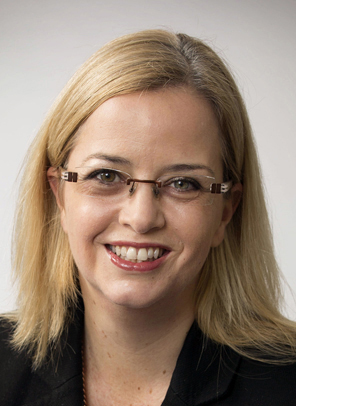Committee, Council & SIG Updates
Malnutrition Action Group (MAG)

Rebecca Stratton, Chair, Malnutrition Action Group
Email: mag@bapen.org.uk
Website: www.bapen.org.uk/about-bapen/committees-and-groups/malnutrition-action-group
BAPEN COVID-19 surveys
During Wave 1 of the COVID-19 pandemic, two BAPEN COVID-19 surveys were undertaken via SurveyMonkey, one about community practice (119 HCPs from England (84%); Scotland (8%); Wales (4%); Northern Ireland (4%), in May and June 2020) and one about hospital practice (154 HCPs from England (90%); Scotland (5%); Wales (2.5%); Northern Ireland (2.5%) in June and July 2020).
A summary of the key results from each of these surveys can now be found on the BAPEN website and full publications will follow later this year. Thank you to everyone who completed these surveys, and we hope the results are useful to inform practice.
National Surveys on Malnutrition and Nutritional Care – 2019, 2020 and 2021!
The full report of the results of our Malnutrition Awareness Week 2019 Nutritional Care survey (with completed data on 1300 participants) is now available on the BAPEN website. Thank you to all the centres and individuals that participated.
We are in the process of analysing all the data from our 2020 UK Malnutrition Awareness Week Survey (undertaken 5-12 October 2020). We had a total of 1196 complete the survey: 991 from England, 25 from N Ireland, and 180 from Wales. Expect to see your local regional reports in the coming months and a full national report on the BAPEN website later this year. Thank you so much for your participation.
We are starting preparations for UK Malnutrition Awareness Week 2021, so if you are interested in getting involved or have any feedback on the survey (portal, questions etc.), then please get in touch.
'MUST'
As a reminder there are lots of resources to support you with screening using ‘MUST’ on the BAPEN website, including guidance on screening during COVID-19. For patients and carers themselves, where appropriate, there is a Self-screening Tool online too.

Nasogastric Tube Special Interest Group (NGSIG)

Dr Barry Jones, Member and Wendy-Ling Relph, Chair NGSIG
Email: ngsig@bapen.org.uk
Website: www.bapen.org.uk/about-bapen/committees-and-groups/bapen-special-interest-groups/ng-sig
NGT safety/NGT Position paper/HSIB/Aide Memoire
Since our last report, our Nasogastric Tube (NGT) Position Paper, ‘Time to put patient safety first’ was published in September. Shortly afterwards, the Healthcare Safety Investigation Branch (HSIB) published their report on a tragic index case of a Never Event. Our findings and conclusions largely concur. NGT is not a simple procedure, it is a complex and dangerous one, which requires placement and confirmation of the correct position to be conducted only by those who can demonstrate appropriate training and competencies, whether using aspirate pH or radiology. The same applies to any new technique which might improve on those used currently. This will require Trusts and Health Boards across the UK to comply with the governance measures mandated in NHS England and NHS Improvement (NHSE&I) Alerts 2011 and 2016 and to provide the necessary support to those who undertake NGT placement. The NGSIG is in discussions with HSIB and NHSE&I to implement our findings.
Aide memoire on NGT placement during the COVID-19 crisis
Our concerns over the safety of NGT placement during the COVID-19 crisis were sadly confirmed by the notification of a number of Never Events during the first wave. Erroneous X-ray confirmation was again the main cause but in many there was inadequate documentation betraying the pressure on staff during that period. For this reason, the aide memoire is still available on our website and it has been agreed with NHSE&I that it may have a role as the latest wave of the pandemic reaches its peak in the UK. With reports of critical care nurses caring for 4 or more COVID-19 patients as this wave progresses, we expect conditions will again favour the occurrence of never events.
NGT as an Aerosol Generating Procedure
The most demanding issue for NGSIG throughout the COVID-19 crisis has been the designation of NGT/nasojejunal tube (NJT) insertion as a non aerosol generating procedure (AGP) by Public Health England (PHE). On the instructions of our President, we looked at the evidence and practice in the UK and internationally, and rapidly came to the conclusion that we should regard NGT insertion as an AGP in line with other professional bodies. Subsequently, we identified or obtained the support of 17 other professional bodies in the UK and 4 international PEN societies. This has placed our nurses in conflict with PHE guidance and the consequent personal protective equipment (PPE). Our letters to PHE and the Secretary of State for Health did not lead to useful responses. However, the Chief Nursing Officer (CNO) was extremely helpful and directed us to the office of the Chief Medical Officer who then set up an Independent High Risk AGP Panel in May 2020. This did not sit until July but eventually completed its deliberations in December. In December, we had to approach the CNO again to ask for her help to speed up publication of this report. Further delay led to publication in January 2021 but, regrettably, with no change in guidance on the status of NGT insertion as an AGP. However, this report fails to address the question adequately. The 2 key statements in this report are “Given the limited and poor quality of the evidence, ….. it is not possible to distinguish the absence of risk from the absence of evidence” and that it was “not tasked to assess the efficacy of PPE”! Having made no reference to the new variant of COVID-19, it is already out of date and the question we posed in our May In Touch report “What if the science is no longer valid?” has been justified (see Independent High Risk AGP Panel - What should Trusts and Health Boards do now? & BAPEN Statement: Findings from the Independent High Risk AGP Panel).
AGP Alliance strategy with Fresh Air NHS
During the summer of 2020, we joined with the British Dietetic Association (BDA) and the Royal College of Speech and Language Therapists (RCSLT) to further the case for NGT insertion as an AGP, as well as swallowing assessments. It is notable that members of all 3 organisations now place tubes and can be involved in swallowing assessments. This became more visible by the inclusion of the British Association of Stroke Physicians (BASP). Together, we invited other professional bodies associated with potential AGPs to join us in the AGP Alliance*, with Dr Barry Jones as Chair. This has been a most fruitful cooperation. We have written to the Prime minister, First Ministers of the devolved nations, their Health Ministers and Jeremy Hunt MP chair of Select committee on Health - with limited responses. We submitted a PMQ and engaged with the BBC, Health Service Journal and British Medical Journal where our views have been aired. Most recently, we have worked closely with the Fresh Air NHS group whose petition gathered over 1000 signatures. Their letter to the Prime minister, First Ministers and Health Ministers, co-signed by the AGP Alliance led to a most helpful letter from the BMA to all Trust CEOs requesting that they implement a more pragmatic interpretation of current guidance as has been the case in many Trusts. At the time of writing, there are 49,000 healthcare professionals off work due to COVID-19, including up to 10% of all nurses; whilst there are 33,000 COVID-19 patients in hospital. We infer from this data that current PPE regulations are ineffective whether staff are performing an AGP or just on the ward with COVID-19 patients. We have noted that critical care staff have half the risk of the general population and that patient facing staff have a greater risk than those not facing patients and 3-4 times greater risk than the general population. Ventilation especially during winter may play a vital role but until this can be remedied, PPE must be enhanced to include availability of FFP3 masks for all on high-risk wards. We hear of shortages of such masks and withdrawal of FFP3 masks by management in response. This is unacceptable. As a result, we have written to the Secretary of State for Health and others again. The Alliance is implementing a media campaign based on a precautionary pragmatic approach so that the “air that we share is not killing us”. We have been supported by statements from the British Medical Association (BMA), Hospital Consultants and Specialists Association (HCSA), Royal College of Nursing (RCN) and FreshAirNHS.
It is not too late to change guidance on PPE and prevent yet more NHS staff from being infected or worse. Only time will tell.
NGSIG plans to review novel techniques for safe placement of NGTs
We plan to contrast and compare novel methods of placing NGTs safely, so as to be able to advise members and government bodies of our opinions on the introduction and costs of such measures.
NGSIG membership
We would like to thank Andrea Cartwright and wish her well on stepping down and welcome our new members (see website).
*AGP Alliance comprises BAPEN, BDA, RCSLT, NNNG, BASP, British Society of Gastroenterology, Chartered Society of Physiotherapy, College of Paramedics, HCSA, Unite, Unison and GMB.

The Nutrition Society

Dr Bernadette Moore, University of Leeds, The Nutrition Society Clinical/Medical Advisory Council member
Email: office@nutritionsociety.org
Website: www.nutritionsociety.org
Twitter: @Nutritionsoc
Instagram: the_nutrition_society
LinkedIn: /nutrition-society
Happy New Year! I hope everyone had a well-deserved and refreshing festive break given the circumstances this year. I was sad I couldn’t see many of the familiar faces I usually do at the BAPEN Annual Conference in November. However, the online ‘Dine at home and dial-in’ virtual event which took place from 9-20 November proved very successful. The event allowed delegates not only to experience 10 webinars focusing on malnutrition in a clinical setting, but also engage with speakers via live Q and A discussions. Congratulations to all the organisers on a wonderful virtual conference – let’s hope we are able to meet in person again at the 2021 Annual BAPEN Conference.
December saw the Nutrition Society’s Winter Conference, which also took place as an online event. Following on from the success of Nutrition Society Live held in July 2020, the Society’s events team added additional networking sessions enabling attendees to meet with speakers, Society Trustees, Council Members and other delegates. Almost 300 delegates from across 17 countries, including Europe, Africa, Asia, Russia and the United States, came together virtually to discuss the topic of micronutrient malnutrition across the life-course, sarcopenia and frailty. This was the highest number of delegates a Nutrition Society Winter Conference has ever seen. It was fascinating to see how research has developed to being able to accurately identify deficiency and understand the interactions between nutrients, drugs and the environment.
2020 has also been a busy year for the Society’s journals. Following on from its launch in October 2019, the first papers submitted to the open access Gut Microbiome journal have now been published along with the first animated abstract video. I want to remind the gastroenterologists among you that submissions are currently open, and the scope of research focuses on the role of diet, pharmaceuticals, nutraceuticals and pre- and pro-biotics in shaping an individual’s microbiome.
Another exciting development is the recently announced plan to “flip” Public Health Nutrition to open access from January 2022. This decision was made as part of the Society’s commitment to open research, making Public Health Nutrition freely available to read, download and share around the world.
Despite the obvious difficulties and challenges posed as a result of the COVID-19 pandemic, the Nutrition Society Training Academy (NSTA) has remained proactive to allow members and the wider nutrition community to continually access CPD resources, including access to evidence surrounding nutrition and COVID-19. While recognising the importance of CPD but understanding that many members may be experiencing ‘burnout’ from continuous screen time resulting from remote working, webinars are now available on demand so that they can be viewed at a time most convenient to you.
Upcoming Nutrition Society events
BAPEN members are always very welcome to attend the Society’s upcoming events and conferences, whether members or not. Current webinar topics (including one from myself!) include:
- ‘Disorders of the digestive tract and probiotic use - dispelling myths’
- ‘Introduction to Human Nutrition Series’
- ‘Nutrition Immunity and COVID-19’
- ‘Sugar, Fat, Alcohol – what’s worse for the Liver?’ (from yours truly!)
Upcoming online conferences that may also be of interest the Spring Conference on ‘Gut microbiome and health’, 29–30 March, and the Irish Section’s conference on ‘Nutrition, health and ageing’, 22-24 June.
All my very best,
Bernadette
Return to top
